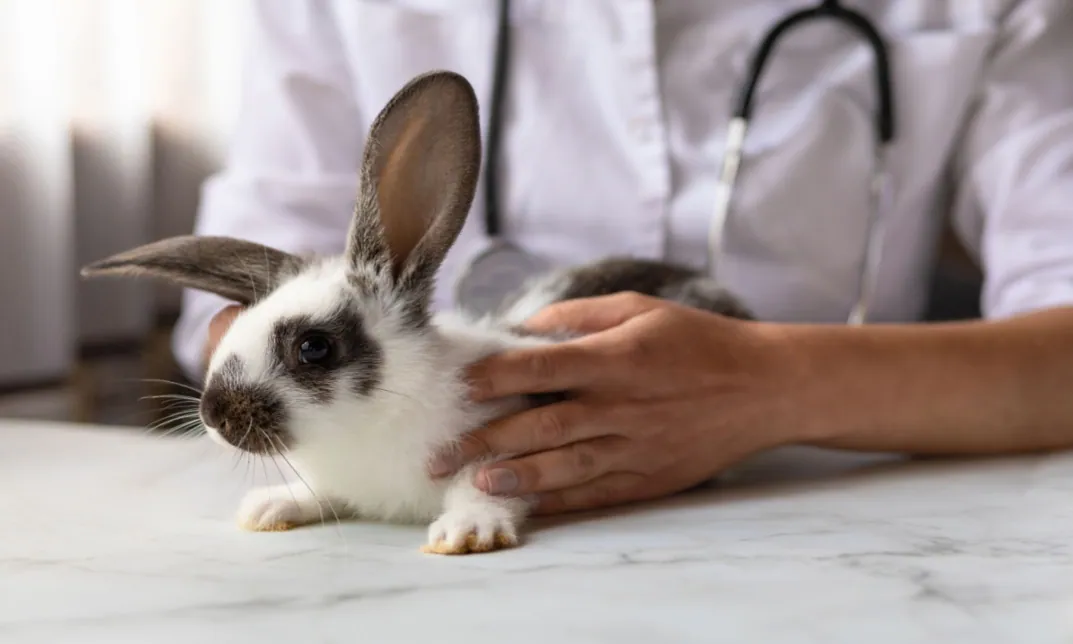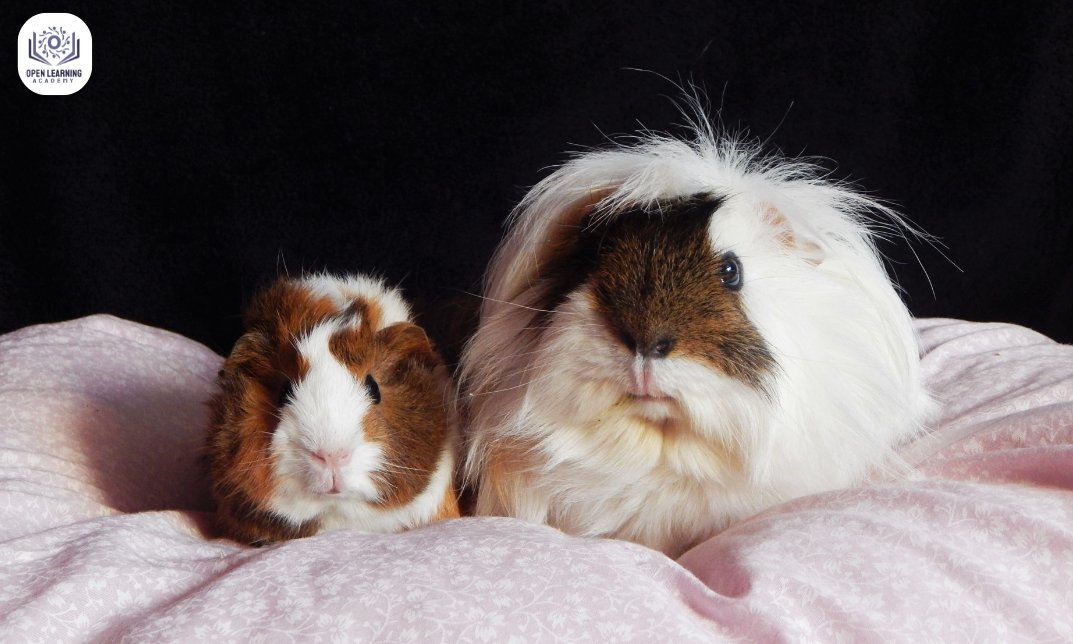No products in the cart.
If you’ve ever watched a guinea pig, you might have noticed that their eyes are always wide open. In fact, they appear to rarely blink.
Guinea pigs, also known as cavies, are small, social animals that are native to the Andes mountains in South America. They are well-loved for their cute faces and gentle nature. However, when it comes to their bodily functions, there are a few things that set them apart from other animals, especially regarding how their eyes work. In this blog, we’ll look at whether guinea pigs blink, why they may not blink often, and how to keep their eyes healthy.

Do Guinea Pigs Blink?
The simple answer is yes, guinea pigs do blink. However, it might not look the same as how humans blink. Unlike people, guinea pigs have a unique way of keeping their eyes moist and protected. Their eyes are large and round, which is characteristic of prey animals. This wide-open gaze is often used to keep an eye out for predators. As a result, guinea pigs blink much less frequently than humans.
Guinea pigs tend to blink in a way that’s not immediately obvious to us. Their blink is subtle and quick, almost like a rapid movement of their eyelids. This is because their eye structure is different from ours. Moreover, guinea pigs have a membrane called the nictitating membrane that helps keep their eyes moist and clean. This membrane is often mistaken for a blink, but it is a separate function. It moves across the eye, providing protection without the need for a full blink.
Why Don’t Guinea Pigs Blink Often?
Guinea pigs, being prey animals, rely heavily on their sight to detect threats. They have evolved to have large, open eyes that allow them to see a wide range of movement. Hence, the need to keep their eyes open most of the time is critical for their survival. If they blink too often, they could miss a potential threat or predator. As a result, guinea pigs have developed an efficient way of maintaining eye moisture and protection without the frequent blinking that humans or other animals might use.

The Role of the Nictitating Membrane
The nictitating membrane is one of the most important membranes in a guinea pig. This translucent membrane can be seen moving across the eye, and its function is to keep the eye moist, clean, and protected. It acts as a kind of shield, ensuring that the guinea pig’s eyes stay healthy despite the lack of frequent blinking. This membrane is not something guinea pigs consciously control but is instead a natural part of their anatomy.
In guinea pigs, the nictitating membrane is more noticeable than in other animals. You might not see it in action when they are active, but if you observe a guinea pig resting or feeling relaxed, you’ll often spot the third eyelid gently sweeping across their eye. This is a completely natural process and shouldn’t be cause for concern. However, if you notice any changes in how the nictitating membrane behaves, it could indicate a health problem.
How Can You Tell If Your Guinea Pig’s Eyes Are Healthy?
Guinea pigs are prone to certain eye conditions, and catching them early can help prevent more serious issues. Here are a few signs to look for that might indicate a problem with your guinea pig’s eyes:
- Cloudiness or Discharge – If your guinea pig’s eyes appear cloudy, it could be a sign of an infection or injury. Similarly, if there is any discharge, such as pus or tears, it could indicate an underlying issue.
- Redness or Swelling – Red or swollen eyes could be a sign of irritation or infection. Therefore, it’s essential to address these symptoms quickly to avoid further complications.
- Excessive Scratching or Rubbing – If your guinea pig is constantly rubbing or scratching at its eyes, it might be dealing with an eye infection, foreign object, or irritation.
- Changes in the Nictitating Membrane – If you notice the nictitating membrane moving too frequently or not at all, it could signal a health issue. For example, your guinea pig might be stressed or experiencing discomfort if it’s constantly visible.
- Tears or Watery Eyes – While some tears are normal, excessive tear production could indicate that something is wrong, such as an infection, blockage, or allergy.

What Can You Do to Ensure Healthy Eyes for Your Guinea Pig?
Taking care of your guinea pig’s eyes is an important part of keeping them healthy and comfortable. So, here are some tips to help you maintain your guinea pig’s eye health:
- Keep Their Living Space Clean – Dust, hay, and other debris can irritate your guinea pig’s eyes. So, make sure to clean their cage regularly to avoid any unnecessary exposure to particles that could cause discomfort.
- Provide Fresh Water – Dehydration can affect your guinea pig’s eyes. Therefore, ensure they always have access to fresh, clean water. This will help keep their eyes moist and healthy.
- Observe Their Behaviour – Early detection can make a big difference in treatment. Therefore, regularly check your guinea pig’s eyes for any changes. If you notice anything unusual, such as excessive tearing or redness, take them to a vet promptly.
- Check Their Diet – A balanced diet rich in vitamin C is essential for your guinea pig’s overall health, including their eyes. Thus, fresh vegetables like bell peppers and leafy greens can help provide these nutrients.
- Monitor Their Health – Guinea pigs are prone to various health issues, so it’s important to monitor their general wellbeing. If they seem lethargic or display signs of discomfort, consult a vet for advice.
Conclusion
Instead of blinking frequently, guinea pigs rely on the nictitating membrane to keep their eyes moist and clean. This natural feature helps them conserve energy and maintain keen eyesight, which is necessary for their survival as prey animals.
Moreover, if you’re a guinea pig owner, it’s important to monitor your pet’s eye health. Be on the lookout for any signs of infection or discomfort and ensure that their living environment is clean and comfortable. With the right care and attention, your guinea pig’s eyes can remain healthy, and they can continue to be the playful, loving companions they are.
If you’d like to learn more about caring for small pets, the Rabbit Care and Training Course by Open Learning Academy offers expert guidance to help you meet their needs with confidence.




